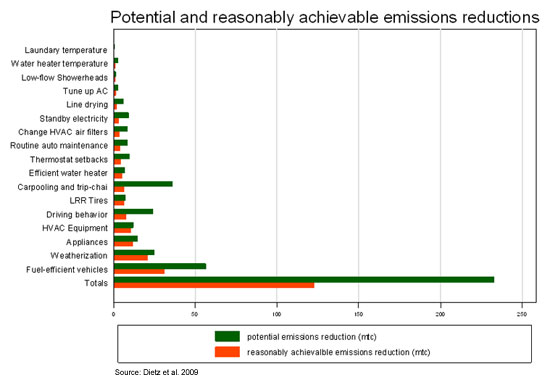What is the behavioral wedge?
The behavioral wedge research program makes four major points:
- Household behavior can make a substantial difference in reducing greenhouse gas emissions. For the U.S. household sector, we have estimated Reasonably Achievable Emissions Reductions of 123 MtC. This is equivalent to the emissions of France, or the total emissions of the petroleum refining, iron and steel and aluminum industries combined.
- Most of this potential comes from adoption of energy-efficient technologies; reduced use matters but does not have as much impact as choice of technologies.
- Voluntary action is important but not sufficient. Policies and programs must be put in place that can overcome the main barriers to change.
- The barriers to change and principles for designing programs and policies are well known from past research, but they are rarely implemented as an integrated package. As a result, programs that feature information, financial incentives, or other important elements have varied in effectiveness by a factor of 10 or more depending on details of implementation Programs and policies could have far greater impact if they adopt the best principles of program design.
- Analysis of household emissions reduction opportunities should focus not only on the technical potential of an action (the emissions reductions that will be achieved if everyone who has not changed behavior does so) but also on the behavioral plasticity (the extent to which people can be induced to change behavior).
Affiliation Institutions:


Connect with Vanderbilt
©2026 Vanderbilt University ·
Site Development: University Web Communications